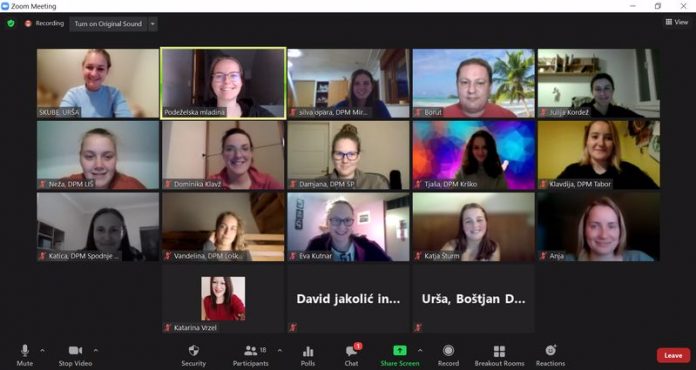Interview with the stakeholders of the eNEET Rural project in Slovenia – the Slovenian Rural Youth ASSOCIATION (Zveza slovenske podeželske mladine: ZSPM); Anja Mager (president of the association) and Urša Skube (head of youth work and informal education)
ZSPM is an organisation that connects many young people from various parts of Slovenia, but they all come from rural areas and would like to contribute to their local environment. What are the skills and knowledge that they need most and what kind of support should the receive to be successful in the tasks they have decided to undertake?
Young people are mostly lacking the skills of project management, strategic planning, but simply said, how to take charge of things and how to spread the knowledge they don’t know they have among other people. To be (young) and active leader is the biggest challenge in itself. There are, however, also challenges connected with practical situations, such as resource management, using different online tools and application and other activities you need to carry out if you are active as a part of the rural civil societies.
As an organisation you offer support to your members by offering your own knowledge, but also by connecting to other knowledge providers (such as the eNEET Rural project partnership). What can you tell us about your decision to cooperate with eNEET Rural project and how did you select the workshops to be carried out?
We chose the themes based on the needs we identified among the rural youth, either through our member organisations or dictated by the current situation (such as learning about online tools). The participants will use these knowledge to further implement the activities of the societies they are members of and further develop their own personal competences.
And what were the responses of the participant? What are the feedbacks to the three workshops carried online?
All together there were over 45 participants, who were very satisfied with what they’ve heard. They would have liked more interactivity from other participants. Although the opportunities were given, it is not easy to participate online. They have gained the basic knowledge of project management, especially how to recognise and define project ideas and how to form them into a project. Also, they learned about fundraising and how to approach different organisations when trying to raise funds. The most practical knowledge was, however, connected to online tools and how to use them for communication, organisation of events, project management, or simply to better organise themselves. Many project ideas have been born as the result, which were already developed into drafts for projects with local impact, so the youth is getting ready to be active in their rural surroundings.
Would you like to have more such cooperation in the future? What other topics would interest you, but were not offered at this time, within the eNEET RURAL project?
We believe that such cooperation is very important for growth of organisations. There is never enough knowledge and exchanging it is a really important skill. We would like to gain deeper knowledge into the topics already covered, if possible, in a more interactive way. Also, the knowledge we need most is resource management, attracting new members, activating more youth in the rural areas, utilising the potential of the local environment, networking with other stakeholders and groups, moderating groups, rhetoric and skills directly applicable in the field.
Is there a message you would like to convey to the eNEET RURAL partnership?
With workshops we recommend a combination of presentations and interactive work, including participants during the sessions. Also, more materials, besides the presentations would be helpful.


